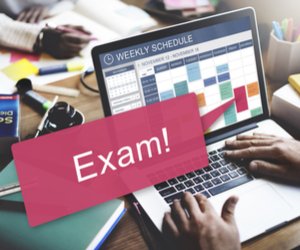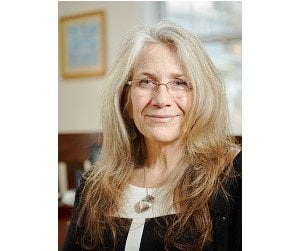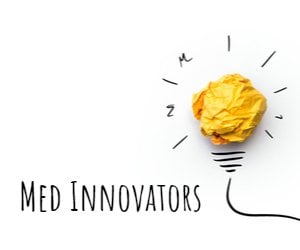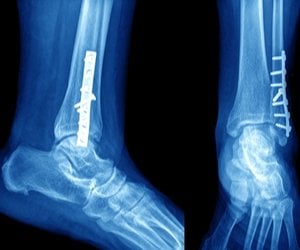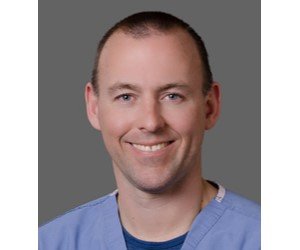Undergraduate students do not need told, again, how important it is to be involved in numerous activities: academics, extracurriculars, employment, research, job shadowing, internships, and social life. Students who are pursuing a career in a science or healthcare field (particularly those with aspirations for graduate school) may find even more intense pressure than their peers. This pressure – to check a box in each “category” above and to succeed at all of them – can be quite overwhelming, especially for students who don’t have any experience in one area or another. One of the most common areas with which students struggle is research. Many prehealth students understand that research should be part of their application, but do not know how to get started, or even what “research experience” means. If this sounds like you, check out Getting In: The Undergraduate’s Guide to Research Experience by David Oppenheimer and Paris Grey.
student
Critical Reading: Building Analysis and Reasoning Skills with Confidence
Anyone who has taken or studied for the MCAT Critical Analysis and Reasoning Skills (CARS)—or any other critical reading test—will tell you that these tests can be incredibly challenging. Why is that true, given that people studying for the MCAT CARS are typically good students? There are several reasons why. Part of the challenge is the subject matter in the passages. Many individuals have not read extensively outside of their disciplines–especially in the humanities and social sciences. Another challenge is that many people today aren’t used to reading material that is written much above the high school level, even college students. Thus, many readers are uneasy with complex sentence structures and elaborate or abstract language. In addition, analyzing and reasoning from material in a new discipline or in a style that is unfamiliar to you is difficult. It can require extra thought for anyone. However, these and other reading challenges don’t need to be roadblocks to your success when you take the MCAT or any other test that involves critical reading. Critical reading, analysis, and reasoning are skills that can be learned and practiced. This article is designed to help you understand the skills you’ll need to read effectively and approach testing for the MCAT CARS and other critical reading tests.
State Exchange Program Helps Healthcare Students With No In-State School Option
No available or affordable program for your healthcare profession in your home state? Take heart! Students in Western U.S. states do have access to affordable professional degree programs in nearly a dozen healthcare specialties, thanks to the Western Interstate Commission for Higher Education’s (WICHE) Professional Student Exchange Program (PSEP).
3 Ways to Explore Medical Specialties
Medicine is a vast field comprised of specialties so different that it’s hard to believe they stem from the same core training. Once you’ve made the important decision to pursue a career as a physician, you must then begin the process of sifting through various medical specialties to identify your own interests. But with limited or no training, you might ask what steps you can take to begin narrowing down your options. Whether you are in high school, college, or have already begun medical school, consider these options as you begin exploring the various medical specialties:
Ending Premed Naivety: Understanding the Realities of a Medical Career
The only real recollections I have of visiting the hospital before college were once as a child undergoing a tonsillectomy and once as a preteen to visit my newborn cousin. Fast forward ten years or so and suddenly I was a freshman in college shadowing a medical professional and trying to decide if I wanted to commit the rest of my life to medicine. It was the first time I really saw medicine for what it was, and it was nothing like I had imagined.
As someone without any relatives or close acquaintances in a health profession, I grew up with a lot of misconceptions about medicine as a career. Like many of you, I will be the first in my family to attend medical school. On many fronts, I have had to discard my preconceived notions about medicine for an understanding borne of proximity and experience. Before beginning the premed journey, I was blissfully unaware of two components of the medical field: the realities of daily work and the lifestyle demands.
How to Prepare For Any Casper Test Scenario
Before giving you some specific strategies to ace Casper scenarios, it’s important to step back … Read more
4 Things I Wish I’d Known About the MCAT
Walking out of the test center after I had completed the MCAT was a surreal experience. Somehow, the far-off test date for which I had been preparing for months had not only arrived, but had already passed. I was suddenly and thankfully in possession of all of the components of a complete medical school application, as an MCAT score was the last blank space to fill on my impending AMCAS application.
The Joy of the Perfect Candidate: A Conversation with Susan Mulroney, PhD
Sometimes, Susan Mulroney, PhD, professor and director of the special master’s program at Georgetown Medical Center, wonders how she got so lucky.
“I wonder- how did people let me get this job? How did I get this career? I was going to be a medical researcher. That was wonderful, and I loved that, but as soon as I started teaching medical students, it was like, oh my God, I love this. This is amazing.”
Osmosis Co-Founders Ryan Haynes and Shiv Gaglani
Ryan Haynes, PhD and Shiv Gaglani, MBA discuss how they went from anatomy partners to the founders of Osmosis, an advanced learning platform that helps medical & other health professional students succeed in classes, on board exams, and in the clinic.
Tell us about yourself
Ryan: I’ve had a longstanding interest in how the brain works. Before attending Hopkins for med school I did a PhD in neuroscience at Cambridge studying decision making. I now live in Charlottesville, Virginia where my wife is a resident in neurology at UVA.
Shiv: I am passionate about developing scalable solutions in the fields of healthcare and education. I attended Johns Hopkins School of Medicine between 2011-2013 and then took a leave of absence to co-found Osmosis as well as complete an MBA at Harvard Business School. I’m now based back in Baltimore where my fiance, Malorie, is an OB/GYN resident at Johns Hopkins.
The Other Medical School: A Detailed Look at a Podiatric Medical Training
Hi! My name is Courtney, and I am currently a third year Podiatric Medical student from Indiana, studying in Ohio. I hope that I can help those of you reading this learn a little more about the field of podiatry and what it is like to be a Podiatric Medical student.
20 Questions: Tyler Edwards, MD, Family Medicine
Dr. Tyler Edwards is an attending physician who specializes in family medicine, practicing for almost 15 years. In addition to his duties as a family physician, Dr. Edwards also works as a hospitalist at Frisbie Memorial Hospital, the same hospital in which his outpatient practice is affiliated. After graduating from Pennsylvania State University in 1995 with a bachelor’s degree in biochemistry, he matriculated at the University of Connecticut School of Medicine, subsequently earning his M.D. degree in 1999. He thereupon moved to Ogden, Utah, to complete his McKay-Dee Family Medicine Residency program, which lasted three years. Dr. Edwards has been married for 18 years and has four children. As a keen advocate for exercise, he enjoys physical, outdoor activities, such as cross-country skiing, running, swimming, and hiking.
10 Tips to Prepare for the AMCAS Application Opening
Updated December 1, 2021. The article was updated to correct minor grammatical errors and technical … Read more
Keeping the Cynic out of the Clinic: Books to Renew your Love of Medicine
Most people don’t associate being a premed with relaxation. Outsiders imagine your existence as a … Read more
Finding Clinical Opportunities: Show Up, Ask, and Follow Through!
I was recently asked to give advice on finding clinical opportunities. Here’s the short version: show up, ask, and follow through! This is an exciting and supportive profession you are entering. Physicians not only remember what it feels like to be in your shoes but they are eager to support you. Part of our responsibility in medicine is to educate and mentor the next generation. This applies to everyone from a first-year medical student all the way to the most seasoned attending. I’ve had opportunities to tutor my classmates, write for Elsevier, deliver a heart from its pericardium, coordinate a helicopter landing and practice my old fashioned medical skills on the 7th continent all because I have shown up, asked for opportunities, and followed through when given the chance. Here are a few notes on how I approach gaining these clinical opportunities.
Dentistr-e Sports: The Intersection of Dental Training and Video Games
Originally published in Contour, March 2017, the magazine of the American Student Dental Association. Learn more at ASDAnet.org/contour.
During a state visit in 2011, Barack Obama was greeted by Poland’s Prime Minister Donald Tusk, who then handed him a video game. “The Witcher 2” was developed in Poland, and Obama explained it as “a great example of Poland’s place in the new global economy.” The list of video games name-dropped by a head of state is, not surprisingly, short. Most media outlets didn’t report on the gesture, but its impact was tremendous in the gaming community.
Time Away From Formal Academics Can Enhance Application
Whether or not a student should take a “gap year” (or two) often comes up during our conversations with applicants to medical school. Based on MedEdits’ experience working with students, we find that gap years are becoming increasingly common and that this extra time away from formal academics can enhance a student’s candidacy.
The Association of American Medical College’s (AAMC) 2016 Matriculating Student Questionnaire (MSQ) reports that the age of matriculants continues to rise, with 60.6% reporting that more than a year had passed since graduating from college, up from 57.9% in the 2014 MSQ. Matriculation data from colleges of osteopathic medicine show that the average age at matriculation in both 2015 and 2016 was 24.
4 Strategies for Students Reapplying to Medical School
In an ideal world, your first attempt at applying to medical school would also be your last. You would apply, receive several interview invitations, and at least one acceptance letter.
However, for many medical school hopefuls, applying to medical school does not result in an acceptance, and as the rejection letters pile up, it can be difficult to determine how to regroup for another application cycle. Ostensibly, you submitted the best application that you could, so how can you improve in the future? What was that original application lacking?
So Little Time: Prioritizing For Healthy Time Management
As I enter the thick of studying for board exams, I’m reminded even more every day to stay calm, grounded, and keep my head clear. This is the last semester of my pre-clinical education (I can’t believe how time has flown!), and I’m caught in a balance of staying positive about that as well as juggling my hours of studying for board exams. I’ve experienced just about every emotion in the past few weeks, but one of them has always been there lurking underneath the surface: the feeling of being overwhelmed. I’ve touched on this multiple times before, but I cannot stress enough how important it is to stay mentally stable and sane through the medical training process! I have found myself slipping these last few weeks as I try to “do it all”, so I had to reach out.
I Want You Tibia My Valentine
Valentine’s Day can be hard for med students, medical professionals, and their spouses because all the other couples are out and about with their special someone. Where is your special someone? Your “person” in the wise words of Meredith Grey, is currently on call at the ER and just texted you during a moment of sanity (miracles do happen) to tell you that due to the high influx of patients they won’t be home that night…even though they worked the previous 6 nights. Sound familiar? “Wait, you don’t know what time your husband will come home every night?” Actually no, no I don’t. “You spent your weekend studying?” Of course! Doesn’t it sound like fun to spend every moment of your waking hours at the library? “Can you guys go out tonight?” Please define “out” and could you set specific parameters on how long we will be gone and when it will be socially acceptable for us to leave to sleep or study once again.
How to Prepare for the MCAT’s Critical Analysis and Reasoning Skills Section
The Critical Analysis and Reasoning Skills (or CARS) section of the MCAT is occasionally placed on the backburner by prospective medical students who are focused on learning (and relearning) the information necessary for success on the science-based portions of the test. What some individuals realize too close to their exam date, however, is that the CARS section is anything but a buffer score for results in “more difficult” sections of the MCAT.







